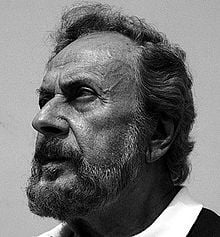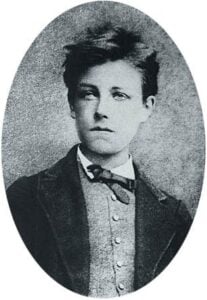Celebrate World Poetry Day by Reading the Best Poems from Around the Globe
When was the last time you postponed every responsibility, every work appointment, and just indulged in a good book? When was the last time you took a few minutes to marvel at the beauty of the best poems in the world?
This year, we can all do that together on World Poetry Day, a day founded by the United Nations Educational, Scientific, and Cultural Organization (UNESCO) founded in 1999. This special day, which is celebrated every March 21, is a homage to a linguistic and artistic expression that has been a vehicle for the transmission and dissemination of the values, beliefs, ideas, and artistic vision of civilizations for millennia.
At Listen & Learn, we are happy to join this year’s celebrations by bringing you the best poems from Greece, France, Argentina, and Italy. Whether you’re looking for a bit of nicely-worded nostalgia, a tribute to the power of will of the human spirit, or a more surrealist take on the complexity of relationships, the following poems from the four countries mentioned above are sure to bring inspiring moments:
Table of Contents
→Sign Up Now: Free Trial Language Lessons With Native Teachers!←
January 25, by Yannis Ritsos (Greece)
For a moment we took refuge
against the latrine wall.
The wind was cutting.
An old man stared at a cloud.
I looked at him smiling
in the light of that cloud—so peaceful,
so far removed from desire and pain—
I was jealous.
Old people agree with the clouds.
And it’s taking us a long time to get old.
Find it in Diaries of Exile, the best poems about homesickness

Yannis Ritsos, via Pinterest.
Diaries of Exile, by Yannis Ritsos is one of the best poetry books of the 20th century. The diary, whose entries are poems titled after the date in which he wrote them, captures the feelings of separateness and homesickness that the poet himself experienced during his years in exile.
Ritsos, a lifelong, passionate communist, joined the Greek Resistance to the Axis occupation, fought alongside the communist guerrilla in the Greek Civil War, and, subsequently, he endured years of confinement in detention centres and camps for political dissidents.
January 25 is an account of the poet’s experience far from his homeland: time passing by, the hope for a future in which the exile may come to an end, and the precariousness of the present:
The Sleeper in the Valley, by Arthur Rimbaud (France)
It is a green hollow where a stream gurgles,
Crazily snagging its silver tatters on the grasses;
Where the sun shines from the proud mountain:
It is a little valley bubbling over with light.
A young soldier, open-mouthed, bare-headed,
With the nape of his neck bathed in cool blue cress,
Sleeps; he is stretched out on the grass, under the sky,
Pale on his green bed where the light falls like rain.
His feet in the yellow flags, he lies sleeping. Smiling as
A sick child might smile, he is having a nap:
Cradle him warmly, Nature: he is cold.
No scent makes his nostrils quiver;
He sleeps in the sun, his hand on his breast
At peace. There are two red holes in his right side.
Find it in Selected Poems of Arthur Rimbaud, the best poems about love and loss

Arthur Rimbaud, via Pinterest.
Arthur Rimbaud was the enfant terrible of French letters during the 1870s. Admiredby Charles Baudelaire, Paul Verlaine, and the French Symbolists, Rimbaud wrote the majority of his work when he was just a teenager.
In order to write The Sleeper in the Valley, Rimbaud took inspiration from his haunting experiences of travel across France during the Franco-Prussian War.
An ode to fallen soldiers, this is one of the best poems by Rimbaud and also one of his most accessible and emotional works.
You can find this poem among his selected works both in French and English.
I Took My Love, by Juan Gelman (Argentina/Mexico)
I took my love that amazed the stars
and I said: Mr Love,
you grow day and night,
in the morning, in the evenings,
sideways, downwards, between the eyebrows,
your noises do not let me sleep, I lost all appetite
and she doesn’t even notice us, it’s useless… useless.
So I took my Love
and I cut off an arm, a foot, every one of his limbs in fact,
I made a deck of cards
and before the paleness of the planets
I played with it slowly one night
while my heart whistled, absentminded.
Find it in Gotán, the best poems with a surrealist touch

Juan Gelman, via Pinterest.
Juan Gelman, who was born in Argentina in 1930 and died in Mexico in 2014, was an Argentine poet, translator, and journalist, and he is often considered the most important poet of his generation.
While most of his literary works belong to the “critical realism” genre, a style that embraced the social and political realities of its time, he also ventured into surrealist poetry, a period that graced us with some of his best poems.
I Took My Love, in which he playfully personifies love as some sort of annoying companion, features some of his most creative verses. Wouldn’t you agree?
Gotán, which is a pun on the word “Tango”, contains the best poems from Gelman’s wild imagination.
Survival Dictionary, by Tiziano Scarpa (Italy)
Of all words
I use only one
(to be honest, I don’t know any other).
A gentleman gives way to me. Hvala.
The cashier hands me the change. Hvala.
The barista serves me coffee. Hvala.
For the rest of things, I make myself understood
through gestures. I point, I wink.
One word is enough for me.
I have discovered that it is possible to survive
with the word thank you.
Find it in Le nuvole e i soldi, the best poems about language
Born in 1963 in Venice, Tiziano Scarpa is a poet, novelist, and playwright. As a writer, he is famous for carrying out readings of his works in public, either alone or accompanied by musicians.
In Survival Dictionary, Scarpa reflects on the power of gratitude, and how a word as simple as “Hvala” (“thank you” in Croatian) can take you a long way when you’re far away from home. A beautiful reminder of the importance of trying to communicate in the locals’ language while we are staying in a new place, even if all we can say is just a few words.
What are the best poems in the world for you? Whether your favourite verses are an ode to the beauty of nature or a surrealist exploration of the human heart, it’s undeniable that the best poems come from all corners of the world.
Enjoy the best poems of the world in their original language
At Listen & Learn, we believe that celebrating world poetry is celebrating the beauty of the human spirit in all its forms, and a way to get in touch with different cultures and languages.
Would you like to learn more about any of the languages featured in this article? In our company, we work with language teachers from all over the world who specialise in tailoring their lessons according to their students’ interests.
→Sign Up Now: Free Trial Language Lessons With Native Teachers!←
Whether you want to understand French poetry without translating it, write verses of love to your significant other or just have a few speaking sessions with a native instructor, the possibilities are endless.
So why not take the chance and unlock the fascinating world of language learning? Fill out our inquiry form now and start the journey!


